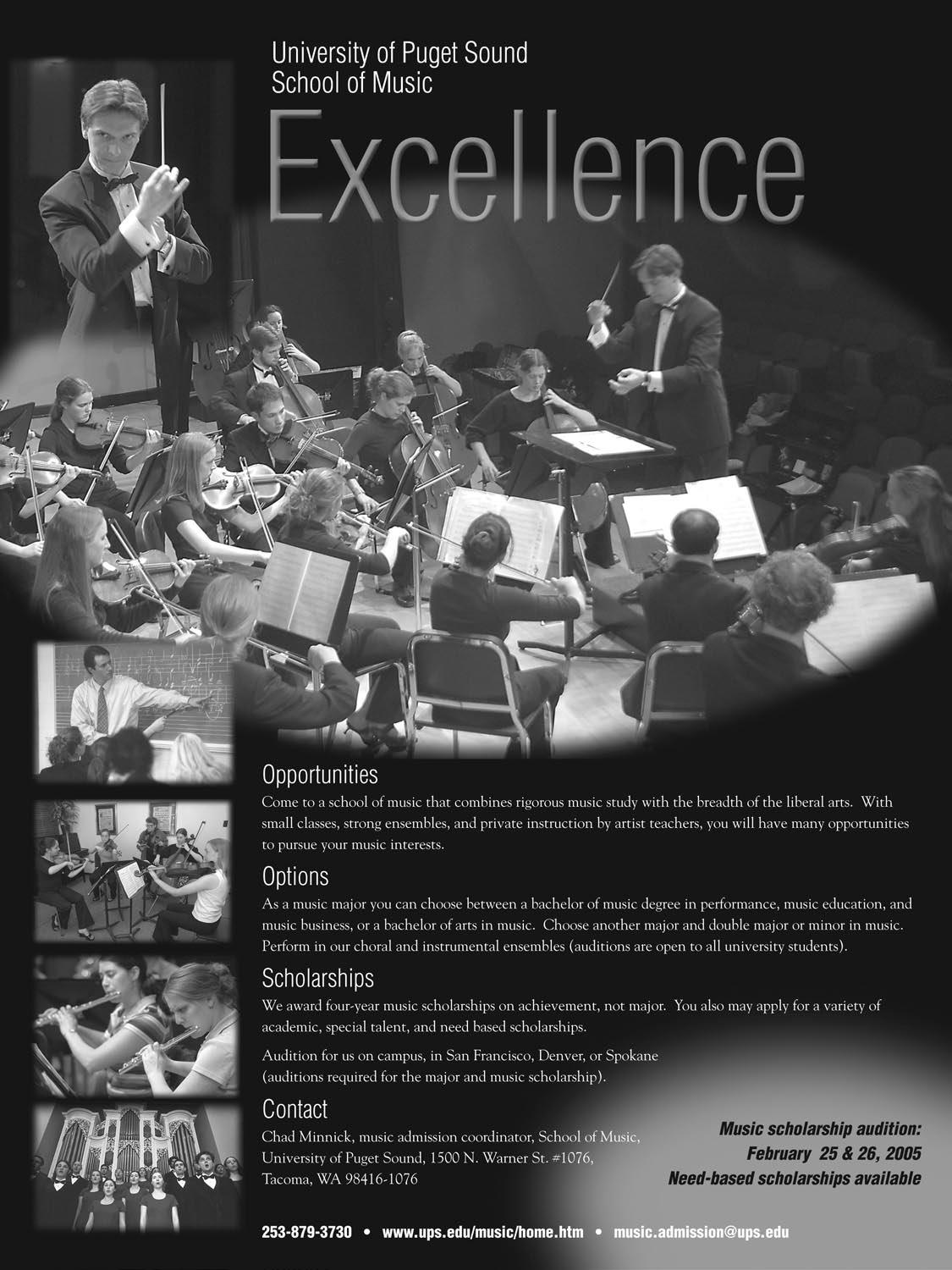
3 minute read
President’sColumnPatrickVandehey OMEABoardPresident
As President of OMEA, I receive MEA journals from around the country. While I don’t read each one cover to cover, I try to at least scan them and read articles of interest. I pay particular attention to the various state presidents’ articles. After perusing the nation, if you will, it’s easy to draw one conclusion: We are not alone in our struggle in Oregon. That conclusion should not be news to any of us. As I read these articles, there is a certain camaraderie I feel with my fellow music educators around the country. We are all in the same battle, fighting the same fight and having the same kinds of dialogues with each other, school administrations as well as legislatures. To quote George Bush, “It’s hard work, it’s hard work, it’s hard work, it’s hard work…” (I’m sorry, I couldn’t resist). It is hard work, but isn’t it nice to be part of a team? Isn’t it great to be able to commiserate with colleagues, to have a forum in which to listen, and, in turn, be heard?
Parker J. Palmer is a highly respected writer and traveling teacher who wrote the book The Courage to Teach. In it, he has a chapter entitled “Learning in Community – The Conversation of Colleagues.” I would like to quote him on a particularly pertinent issue.
Advertisement
Academic culture builds barriers between colleagues even higher and wider than those between us and our students. These barriers come partly from the competition that keeps us fragmented by fear. But they also come from the fact that teaching is perhaps the most privatized of all the public professions.
Though we teach in front of students, we almost always teach solo, out of collegial sight—as contrasted with surgeons or trial lawyers, who work in the presence of others who know their craft well. Lawyers argue cases in front of other lawyers, where gaps in their skill and knowledge are clear for all to see. Surgeons operate under the gaze of specialists who notice if a hand trembles, making malpractice less likely. But teachers can lose sponges or amputate the wrong limb with no witnesses except the victims.
When we walk into our workplace, the classroom, we close the door on our colleagues. When we emerge, we rarely talk about what happened or what needs to happen next, for we have no shared experience to talk about. Then, instead of calling this the isolationism it is and trying to overcome it, we claim it as a virtue called “academic freedom”: my classroom is my castle, and the sovereigns of other fiefdoms are not welcome here.
Does this sound like you or anyone you know? OMEA is an organization whose very existence is to combat this scenario. We are the only professional organization that speaks to the needs of all disciplines in music education. Coming up very soon in January 2005 is our next OMEA Conference. It is our forum. It is the only vehicle where all music educators gather together as one voice to support our passion. This is why going to the OMEA Conference in January is so vital. Here is your opportunity to rub shoulders with the rest of your “team.”
We have instigated a yearly conference for several reasons. First, it provides a conference/ honor ensemble setting for small schools. We did this a few years ago with tremendous results. The honors groups were outstanding and the experience for those students, many of whom would have difficulty being a part of the All-Northwest or All-State groups that include 4A students, was terrific.

Second, it is an In-service for all of us, at all levels, in all disciplines. Having moved to the university level of teaching, I have found that, more than ever, I need to hone my skills. I am reminded daily how little I know and how much learning still needs to take place. So there you go! I need to go to the State conference to soak up the great information provided by my colleagues.
Third, and most important, it is an opportunity to hang with our colleagues. I continue to scream from the rooftops that “we need each other!” Don’t be an island! Come and share; come and receive. We need to get together as a community and discover how each other operates; handles the tough issues; and prepares and evaluates—and keeps a balanced life while doing it.
The big concern about having an annual OMEA conference is that it might negatively impact Oregon’s attendance at the MENC







